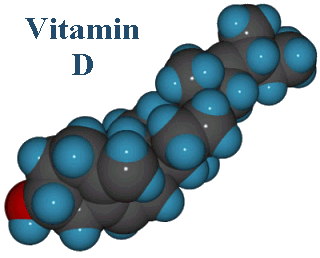 During the Endocrine Society’s 91st Annual Meeting, researchers from the University of Minnesota reported that higher blood levels of vitamin D were associated with greater weight lose in obese volunteers on a calorie-restricted diet.
During the Endocrine Society’s 91st Annual Meeting, researchers from the University of Minnesota reported that higher blood levels of vitamin D were associated with greater weight lose in obese volunteers on a calorie-restricted diet.
First, the details.
- 38 overweight men and women were assigned to a calorie-restricted diet — 750 calories a day fewer than their estimated total needs — for 11 weeks.
- Blood levels of vitamin D were measured before and after 11 weeks.
And, the results.
- On average, many of the participants were vitamin D insufficient.
- Higher baseline vitamin D levels (both 25[OH]D and 1,25[OH]2D) were associated with increased loss of abdominal fat.
- For every increase of 1 ng/mL of 25-hydroxycholecalciferol — the precursor of vitamin D and a commonly used indicator of vitamin D status — volunteers lost almost a half-pound (0.196 kg) more on their calorie-restricted diet.
- For each 1 ng/mL increase in the active or “hormonal” form of vitamin D (1,25-dihydroxycholecalciferol), the volunteers lost nearly one-quarter pound (0.107 kg) more.
The bottom line?
Higher baseline vitamin D levels (both the precursor and active forms) predicted greater loss of abdominal fat.
The researchers concluded, “Our results suggest the possibility that the addition of vitamin D to a reduced-calorie diet will lead to better weight loss.”
More research will be needed to confirm these results and provide specific recommendations for dosing and target blood levels.
Earlier, researchers in Germany reported that taking vitamin D supplements did not affect weight loss. However, these patients had low blood levels of vitamin D (25[OH]D) at the start of the study (12 ng/mL). Normal range is 16 to 74 ng/mL.
6/15/09 15:35 JR